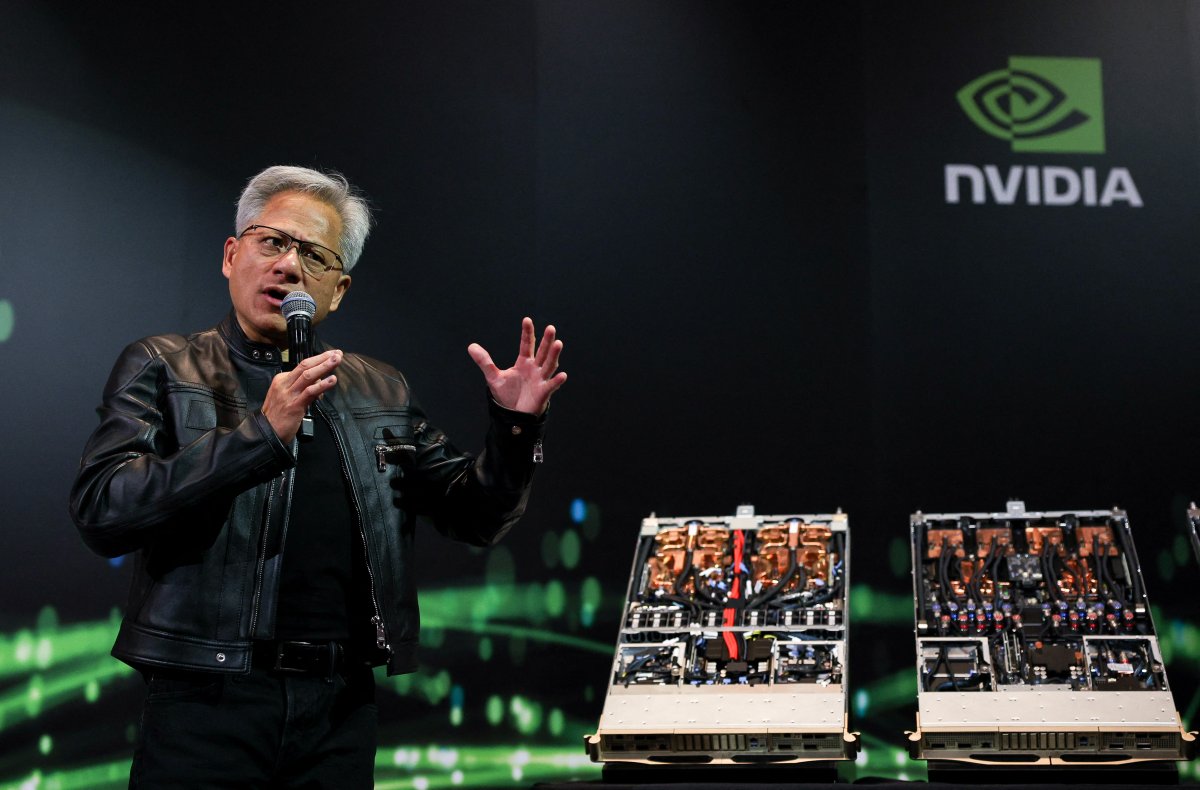Nvidia is preparing to launch a new artificial intelligence (AI) chip designed for the Chinese market, with mass production slated to begin as early as next month, according to a Reuters report. This move comes amid heightened U.S.-China trade tensions and stringent export controls imposed by the United States.
Background
Nvidia, the leading U.S. chipmaker, has found itself caught in the crossfire of the ongoing trade war between Washington and Beijing. As of April, the U.S. accounted for approximately 42% of Nvidia’s business, while China and Hong Kong combined represented about 15.5%, based on financial data from CSI Market.
The new chip is part of Nvidia’s Blackwell architecture series and is expected to be significantly cheaper than its predecessors. Previous chips were priced between $10,000 and $12,000, while the new ones are anticipated to cost between $6,500 and $8,000. This price reduction is attributed to “weaker specifications and simpler manufacturing requirements,” as per Reuters.

Trade Tensions and Export Controls
The U.S. has been attempting to restrict China’s access to high-quality chips to limit the country’s AI development. Recent export restrictions have introduced a limit on the memory bandwidth of GPU chips, affecting other nations’ ability to develop AI. Despite these efforts, China managed to produce the DeepSeek AI, utilizing lower-grade chips available due to U.S. controls, at a relatively low cost of $6 million.
Nvidia’s Statement
An Nvidia spokesperson emailed Newsweek on Saturday, stating, “We are still evaluating our limited options. Until we settle on a new product design and receive approval from the U.S. government, we are effectively foreclosed from China’s $50 Billion datacenter market.”
Future Prospects
Nvidia plans to enter production on the Blackwell chip in June, but the timeline for sales to China remains uncertain. The company’s efforts to navigate the complex landscape of U.S.-China trade relations continue, as it seeks to maintain its market presence in China while complying with U.S. regulations.


